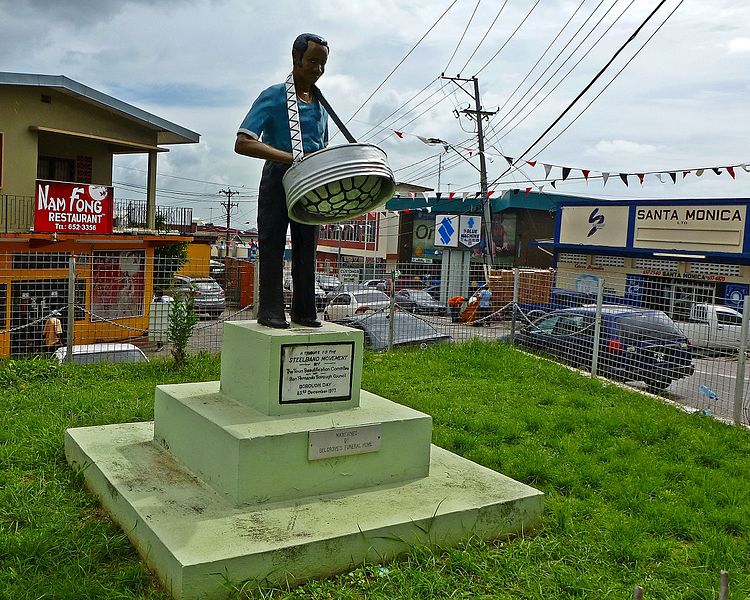'Everything sounds the same'

THE PAN and steelbands have evolved greatly since its invention some time in the 1930s, and today its music is one of the sounds most identifiable with the Caribbean.
But as Martin Albino, Trinidad All Stars veteran, reminisced along with fellow veterans on Thursday at the 61st-anniversary celebration of the first bomb competition, he lamented one major thing that has not changed for the better – the sound of the pan.
“They all sound the same,” Albino said.
Albino told Newsday at the reunion, held at the All Stars panyard on George Street, Port of Spain, pan has grown since the early days when tuners and panmakers would experiment with the sounds of biscuit drums and oil drums. But with its evolution and tuners’ mastery of the art of harmonics, pans have lost their individuality and it has become difficult to differentiate between the sounds of different types of pan.
“When I was growing up as a kid, to me every instrument had its own unique sound – a tenor pan had a different sound from a guitar pan, and a cello pan had a different sound from a quatro pan.” Albino said. “Now, there is a difference in depth, but as far as the tonal quality, they all sound the same. All pans should not have the same sound.”
Albino suggested pans should regain their individual sounds, and have those sounds come together the same way the violin, piano and drum would come together in an orchestra to make a unified sound.
At the reunion and commemoration of the first bomb competition, Albino recounted his experience when he first heard All Stars perform there. He said the bomb competition was invented by Neville Jules, whose players were very secretive about the songs they planned on performing.
“We practised with our fingers,” he said. “We had one tenor pan one quattro pan, one guitar pan and one bass. It was just you hearing the notes that you were playing, and no one else would hear. We didn’t even call the name of the song. We would call it song no 1 or Song no 2.
"But when when J’Ouvert morning came and we had all the players playing, it made my hair stand on end, and my pores raise. That song will stay with me for the rest of my life.”
Albino noted that several things have changed in the landscape of pan since that first competition, and most things have changed for the better. He pointed out how the perception of pan players also changed – from people considering panmen 'badjohns' and criminals, to people using pan as a means to get youths away from the influence of criminals. He also added that a lot of the discipline he learned came from being in a steelband.
“There was a guy called the Bookman,” Albino recalled, “If we picked a time to practise – let’s say 6 o’clock – and you were late, he would write your name in a book. If they say no coasting and you are coasting, he would write down your name. When Carnival is over you weren’t sure to get any money period. That was the kind of discipline that we learned in the pan band and they continue it to this day.
“In the early days, regardless of the discipline, no parent wanted their children to be in the panyard. I had the same problem when I was young. I came from a middle/upper-class family and my parents didn’t want to hear me in the panyard period. But of course I couldn’t resist.”
Bomb competitions are usually held on J’Ouvert morning, where bands would compete with tunes that are not soca or calypso tunes but played in calypso time. This year Desperadoes won with Blessed Assurance. Last year All Stars took home the trophy with their version of the theme from Magnificent Seven.

Comments
"‘Everything sounds the same’"